Planning Committee
Conference Chairs
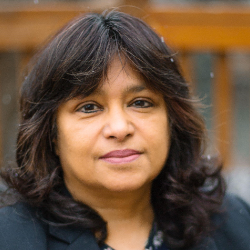
Dr. Anna Banerji, Chair O.Ont., MD, MPH, FRCPC, FAAP, DTM&H CTropMed
Dr. Anna Banerji, Chair O.Ont., MD, MPH, FRCPC, FAAP, DTM&H CTropMed

Dr. Anna Banerji is a pediatrician, infectious/tropical disease specialist, public health specialist, and human rights advocate. She is a compassionate humanitarian where equity, diversity and social justice has been central throughout her professional career and personal life. As an educator, researcher and activist, she has focused on refugee and Indigenous populations.
Dr. Banerji, a pioneer in refugee health, is the founder of the North American Refugee Health Conference (NARHC) which occurs in Canada on alternative years. It has become the largest academic meeting on refugee health globally. She is the founding Executive Director for the North American Refugee Health Conference Incorporated. She has been working with refugee children for most of her career and created the COSTI Pediatric clinic where she screens most of the refugee children coming to Toronto. When the Syrians arrived in 2016, she was the first healthcare provider onsite at the hotel and currently is assessing Afghan children at the airport hotels.
Dr. Banerji has been working with Indigenous communities for almost 30 years, as a strong ally and advocate for Indigenous peoples. She has travelled to numerous Indigenous communities across Canada in various capacities. She has published landmark research on respiratory syncytial virus (RSV) documenting that Inuit babies have the highest admissions for RSV globally and has been advocating for health equity including access to the RSV vaccine for term Inuit babies. Dr. Banerji was successful in advocating for more resources for Indigenous communities to fight COVID-19 through petitions which resulted in an additional $305 million dollars, and Indigenous Services implemented most of her recommendations for the management of COVID-19 in Indigenous communities.
In 2014 Dr. Banerji founded the Indigenous Health Conference, the largest academic event in Canada discussing diverse aspects of Indigenous Health. She was a public health consultant for the COVID-19 task force for Nishnawabe Aski Nation which represents 49 First Nations communities in Northern Ontario. When the COVID-19 vaccine became available, she spent five weeks in remote Northern fly communities to vaccinate First Nations Youth.
Dr. Banerji has travelled extensively around the world including working in a field hospital with the Canadian Red Cross in Haiti for a month, soon after the 2010 earthquake. She has given thousands of media interviews and invited lectures, mostly advocating for health equity. She was a trusted voice in the media during COVID-19 with her candor, knowledge and experience, focusing on disadvantaged and under-served populations including: CBC The National, BBC, CNN, Al Jazeera and the Washington Post. She is currently an expert medical columnist for the CBC Syndication for radio stations across Canada.
She has won several awards including: the Dr. Peter Henderson Bryce Award (2019) for her advocacy with Indigenous children, Ontario Pediatrician of the Year (2022) and was inaugurated into the Order of Ontario in 2012.
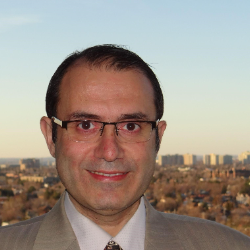
Dr. Vanig Garabedian, Co-Chair M.D., OB/GYN, LMCC
Dr. Vanig Garabedian, Co-Chair M.D., OB/GYN, LMCC vaniggarabedian@yahoo.com

Dr. Vanig Garabedian moved with his family to Canada from Syria in December 2015 as a refugee.
In Syria, he worked as an obstetrician-gynecologist for 15 plus years including 4 years in a war zone. He was the medical director of the largest hospital in the Middle East. Dr. Garabedian practiced in both public and private hospitals and taught in an obstetrician-gynecologist residency program and nursing school. He completed his medical training at Tishreen University. This includes his obstetrician-gynecologist residency in Damascus and his master’s degree in obstetrics-gynecology (board certified from Syrian Board of Medical Specialties). He is a registered physician in Canada.
Dr. Garabedian is passionate to assist people integrating into Canada and providing support in times of crisis. He has made numerous contributions in many refugee and newcomer communities and organizations. Among them: The Together Project, TRIEC, Woodgreen Immigrant Services and Access Centre.
He is married and has 3 daughters. His favourite activity is spending time with family. His favourite food is Syrian kabab.
Planning Committee
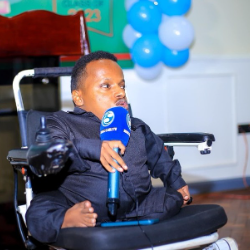
Ali Abdiwahab Adan Journalist, Disability Rights Activist, Researcher, Digital Media Creator
Ali Abdiwahab Adan Journalist, Disability Rights Activist, Researcher, Digital Media Creator

Born with Osteogenesis Imperfecta (OI) also known as “brittle bone disease,” is a rare genetic condition that makes my bones very fragile and prone to fractured easily in numerous times, from my bath until my age of 20th in rural Somalia, I have faced significant challenges, including systemic discrimination, insecurity, and physical barriers.
Despite these obstacles, my determination and resilience have enabled me to achieve numerous personal and professional milestones. Becoming a journalist in 2014 was a dream come true. It opened a new world where disability rights could be explored and championed.
This journey has allowed me to advocate not only for myself but also for my fellow disability community, including my youngest daughter, who shares the same condition as I do.
I recently immigrated to Canada from Somalia with my family after spending nearly seven years as a refugee in Uganda.
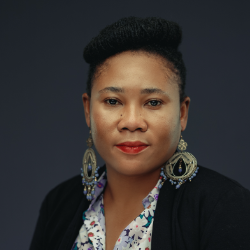
Gloria Aidoo-Frimpong
Gloria Aidoo-Frimpong

Dr. Gloria Aidoo-Frimpong is an Assistant Professor in the Department of Epidemiology and Environmental Health at the University at Buffalo, specializing in global health and implementation science. Her research focuses on reducing HIV-related health disparities among African immigrant and refugee populations by addressing social and structural determinants of health, such as stigma and healthcare access.
Her work integrates community-based approaches and implementation science to develop culturally tailored interventions that are effective and scalable in diverse settings. She has extensive experience using digital platforms like WhatsApp to engage underrepresented communities in research and improve health outcomes.
Dr. Aidoo-Frimpong holds a Ph.D. in Community Health and Health Behavior and serves on the editorial board of BMC Public Health. Her commitment to global health equity is reflected in her efforts to translate research findings into practice and policy, ensuring that marginalized communities have access to high-quality, culturally competent care.
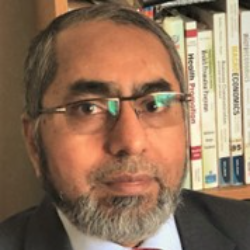
Akm Alamgir PhD, MPhil, MBBS
Akm Alamgir PhD, MPhil, MBBS

Access Alliance Multicultural Health and Community Services
Akm Alamgir has earned a Ph.D. degree in evaluation research, a Master’s degree in epidemiology, and a Bachelor’s degree in medicine. He is the Director of Knowledge and Learning at Access Alliance (Toronto). He teaches at York University (Toronto) as an Adjunct Professor and as a guest teacher at the University of Toronto. He is an Academic Editor of the journal PLOS One. He is a mixed-method (quantitative, qualitative, and art-based) community-based researcher on social determinants of health intersecting with health, diseases, and well-being of refugees and other equity-deserving populations in Canada. His area of research and advocacy focuses on developing a resilience model and a population-based Equity, Diversity, and Inclusion Framework for residents made vulnerable by the system and poverty. He generates evidence, creates KMb materials in a co-design lab, and builds the capacity of peers to utilize synthesized proof to make a change. His collaborative research with academics and community partners is funded by PHAC, CIHR, SSHRC, and other funders amounting to nearly $2 Million. He reviews peer-reviewed journals such as the Journal of International Migration and Integration, PLOS One, and Health Promotion International. He wrote three post-secondary textbooks on public health and has over 50 peer-reviewed publications.
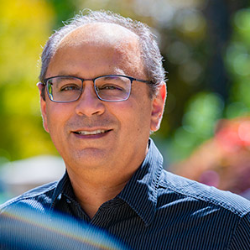
Neil Arya MD CCFP FCFP D Litt
Neil Arya MD CCFP FCFP D Litt narya@uwaterloo.ca

Neil Arya MD CCFP FCFP D Litt (www.neilarya.com)is a family physician, founder Director of the Kitchener/Waterloo Refugee Health Clinic and a Fellow at the Balsillie School for International Affairs. He is Assistant Clinical Professor Family Medicine (part-time) McMaster University and Adjunct Professor School of Public Health Sciences University of Waterloo; Dr. Arya has taught, lectured, written and participated in research on- refugee health issues, Peace through Health and Global Health around the world. He is President of PEGASUS Institute (https://pegasusinstitute.ca/), has edited four books. Dr. Arya was founding Director of the Global Health Office at Western University (2009-2013) and Scholar in Residence and Fellow at the International Migration Research Centre at Wilfrid Laurier University (2018-2020). He remains Assistant Clinical Professor in Family Medicine at McMaster University. Dr. Arya has been recognized by the community, colleagues and academic including with the College of Family Physicians of Canada Geeta Gupta Award for Equity and Diversity (2009) .DLitt. (Honorary) Wilfrid Laurier University and mid-Career Award in International Health from the American Public Health Association (2011) and the College of Family Physicians Canada (CFPC) Award of Excellence (2013).
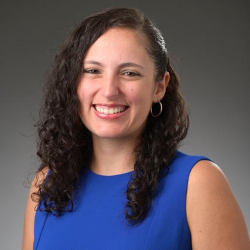
Dr. Chanelle Diaz
Dr. Chanelle Diaz

Dr. Diaz is a board-certified General Internist practicing primary care in New York City. She is the Internal Medicine Medical Director at the Charles Rangel Community Health Center in Harlem, the Medical Director for the Adult CHW Program at New York Presbyterian's Center for Community Health Navigation, and an Assistant Professor of Medicine at Columbia University Medical Center. She grew up in Miami, Florida, where she was raised by her immigrant grandparents. She attended Williams College, received her MD/MPH from the University of Miami Miller School of Medicine, and completed her residency training in Primary Care and Social Internal Medicine at Montefiore Medical Center/Albert Einstein College of Medicine. Dr. Diaz’s work focuses on community-engaged approaches to address immigrant health inequities resulting from immigration enforcement policies. As a resident, Dr. Diaz joined a network of volunteer clinicians visiting immigration prisons to evaluate detained immigrants with serious medical conditions to document unmet medical needs. This led to several collaborative research projects evaluating the health impacts of immigration detention filling critical gaps in the literature. Bearing witness to the many harms detained immigrants experienced influenced her in publishing several opinion pieces in the lay media on the public health hazards of immigration detention. She has collaborated with other medical and legal experts to develop best practices in the medical evaluation of individuals in immigration detention, and has trained dozens of residents and medical students. Dr. Diaz is committed to using her voice as a physician researcher to uplift human rights, health justice, and equity.
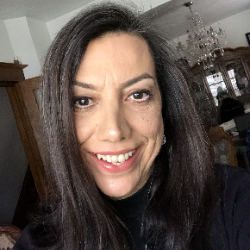
Teresa Dremetsikas
Teresa Dremetsikas

Teresa Dremetsikas is presently a program manager at the Canadian Centre for Victims of Torture (CCVT). She graduated as a Medical Doctor from the Faculty of Medicine in Monterrey Nuevo Leon in Mexico and has worked for the Canadian Centre for Victims of Torture since the late 80’s . She has worked at the CCVT in different positions including starting as a volunteer and thereafter hired in 1987 to do frontline work including one on one assessment and counselling of clients she also worked with survivors organizing support groups. Other activities along the years have included: facilitation of training sessions for staff, internally and externally for other settlement service providing organizations. She has also provided training sessions to Immigration Department (Refugee Board, enforcement branch and even External Affairs and Visa officers.) She has been active doing presentations at conferences locally, Nationally and Internationally on the issue of Torture. Presently she oversees the Anti-human trafficking, the Gender Base Programs and the Medical Services at the CCVT. In collaboration with staff and other managers as well as network of professionals and volunteers, she has been involved in the design, implementation on and evaluation of several Services at the Centre throughout the years.
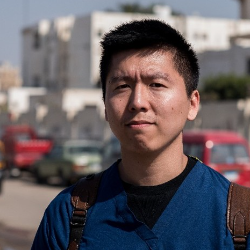
Dr. Yipeng Ge MPH, MD CCFP, Primary Care Doctor, Public Health Practitioner
Dr. Yipeng Ge MPH, MD CCFP, Primary Care Doctor, Public Health Practitioner

Dr. Yipeng Ge is a primary care physician and public health practitioner based on the traditional, unceded, and unsurrendered territory of the Algonquin Anishinaabeg. In his clinical practice, he works in family medicine practice and refugee health at a community health centre. He has worked on and studied the structural and colonial determinants of health in both the settler colonial contexts of so-called Canada and occupied Palestine.
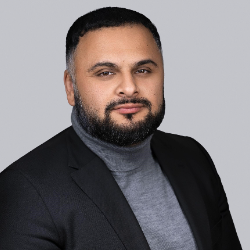
Fardous Hosseiny
Fardous Hosseiny

Fardous Hosseiny (he/him) is the President and CEO at the Atlas Institute for Veterans and Families (formerly the Centre of Excellence on PTSD), located at the Royal Ottawa Mental Health Centre in Ottawa.
Before coming to Atlas, Fardous was most recently the interim National Chief Executive Officer and the National Director of Research and Public Policy, at the Canadian Mental Health Association.
His research work focuses on strategic policy issues related to mental health system transformation, parity legislation, Veteran and their Families mental health, substance use and addiction and mental health for newcomers and underrepresented groups.
Fardous is also a frequent commentator on these issues for Global News, CBC, CTV News, The Globe and Mail, The Toronto Star, among others.
Fardous was a part of the Canadian delegation to the 73rd Session of the United Nations General Assembly and played a role in the development of the first ever United Nations event dedicated to mental health.
Fardous also serves on many national and international committees, including as a member of the Five Eyes Mental Health Research and Innovation Collaboration, an executive advisor on the Global Alliance for Mental Health Advocates (GAMHA), and past co-chair for the Canadian Alliance for Mental Illness and Mental Health (CAMIMH) and Canadians for Equitable Access to Depression Medication (CEADM).
Fardous is a clinical investigator at the University of Ottawa Institute of Mental Health Research.
Fardous completed a Master of Science with a focus on the neuroscience of addiction and a BSc Honours, both at the University of Toronto. He also holds a Certified Health Executive (CHE) designation from the Canadian College of Health Leaders.
Fardous is on the Board of Directors – Canadian Juries Commission and Renascent Addiction Treatment Centre.
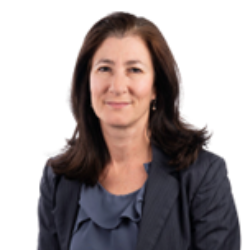
Christine Kouri Director N4
Christine Kouri Director N4 National Newcomer Navigation Network

Christine’s 30-year career in healthcare has focused on identifying inequities and addressing key barriers through measurable and sustainable change. She holds a Bachelor of Science in Nursing and a Master's in Health Administration. Her work to ensure equity for Syrian refugees led to a passion for raising awareness of the barriers faced by newcomers within the healthcare sector. She co-designed the formation of N4 to enhance the capacity of healthcare professionals in assuring equity for newcomers through knowledge mobilization and pan-Canadian and intersectoral collaborations.
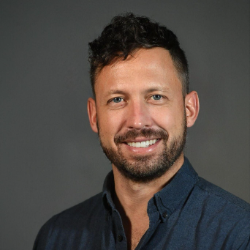
Dr. Nathaniel Kratz MD
Dr. Nathaniel Kratz MD

Dr. Nathaniel Kratz, an Internal Medicine and Addiction Medicine physician, serves as the Director of Adult Community Health at New York-Presbyterian Hospital and is an assistant professor of clinical medicine at Columbia University Vagelos College of Physicians and Surgeons. Dr. Kratz has a strong background in community health and addiction medicine, with a focus on addressing the health disparities faced by marginalized populations, including immigrants and refugees. He serves as the Medical Lead for Targeted Outreach and also has extensive experience in performing forensic evaluations and documenting abuses in the US immigration detention system.
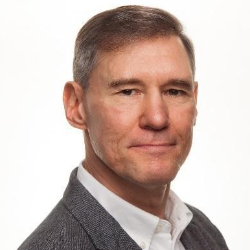
Glen Kushla P. Eng. PMP
Glen Kushla P. Eng. PMP gkushla@gmail.com

Glen, an engineer by training, worked for over 30 years with a private Canadian Engineering, Procurement, Construction Management (EPCM) company. For the last 20 years, he has been managing all aspects of technology projects (i.e., scope, schedule, budget, risk) to support the execution of large EPCM projects.
He is a licensed member of Professional Engineers Ontario and holds the Project Management Institute of Project Management Professional (PMP) accreditation.
Glen brings valuable, transferrable skills to the NARHC Inc. board of directors. In addition to managing people and projects, Glen has expertise in identifying requirements, implementing technology and collecting and analyzing data.
Glen is enjoying a physically active retirement and is always seeking opportunities to give back to his community.
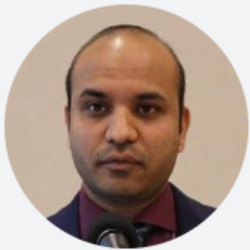
Sheikh Muhammad Zeeshan Qadar B. Pharmacy, MSc
Sheikh Muhammad Zeeshan Qadar B. Pharmacy, MSc shelinashivji@rogers.com

Zeeshan is a project manager who developed and has been managing the Migration and Public Health Knowledge Translation project stream at the National Collaborating Centre for Infectious Diseases (NCCID). Numerous knowledge mobilization activities and resources were developed by Mr. Qadar including webinars, podcasts, case studies and conference presentations (Canadian Public Health Association 2016 and 2018, North American Refugee Health Conference 2017, 2018, 2019).
Currently, he is managing COVID-19 response and has been involved as co-principal investigator on a project looking at the role of communication strategies and media discourse in shaping psychological and behavioral response to the COVID-19 outbreak, comparing Canada, Hong Kong and the Philippines. He’s also studying ethical frameworks and models for unproven treatments during a pandemic in Canada and around the world. Zeeshan also developed a repository for public health resources related to COVID-19 created by provinces and territories in various languages.
He also contributes behind the scenes to NCCID’s weekly “Infectious Questions” podcast, which covers issues like preparedness in nursing homes and stigma and discrimination. He is looking into a project related to use of big data in public health surveillance and mathematical modeling in infectious diseases public health.
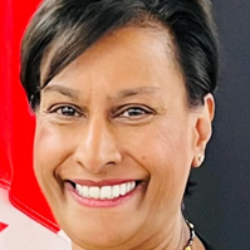
Dr. Umashanie Reddy
Dr. Umashanie Reddy

Dr. Umashanie Reddy is the Manager of the Resettlement Assistance Program National Coordinating Body. Umashanie works collaboratively with Immigration, Refugees and Citizenship Canada (IRCC) and the resettlement service providers nationally to support the resettlement and integration of government-assisted refugees.
Her experience spans over 2 countries and 3.5 decades working with equity seeking populations in diverse diasporas in multisectoral contexts in South Africa and Canada. In 2024 Umashanie obtained her doctorate in education from the University of Western Ontario. Her experience in health emanates from South Africa and includes her work on the enactment of the first HIV Aids library in Southern Africa at the Nelson R. Mandela School of Medicine and later in Canada as the Tom Baker cancer librarian at the Tom Baker Cancer Centre, University of Calgary.
From a personal perspective Umashanie is a stage IV cancer survivor of 34 years. She is the recipient of several awards for her service to humanity including, Immigrants of Distinctions, RBC Top 25 Canadian Immigrants, Graduate of the Last Decade, and the Queen Elizabeth II Platinum Jubilee Medal.
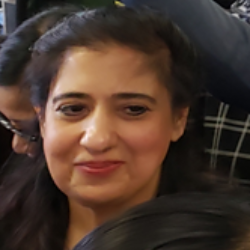
Shelina Shivji
Shelina Shivji

Shelina Shivji is a creative Change Facilitator. Among other credentials from several accredited Canadian institutions, she holds a Masters in Conflict Analysis and Management with a concentration in Community and Schools.
For past 30 plus years, through multiple volunteer and professional roles, Shelina has had extensive practice in the areas of Human Empowerment and Social Development. Her work ethic is grounded in the approach of multidisciplinary/integrated service delivery models.
Shelina is currently employed with the Ministry of Solicitor General Ontario, in the Community Service Sector.
She recently completed an eight-year term as a Board Director at TNO - The Neighbourhood Organization, five of which were as Board Chair/President.
TNO is a community-based, multi location, multi-service agency in Ontario, Canada, since 1985. Providing Social Services, as well as primary care, and related linkages for refugees and newcomers to Canada are integral components of this organizations service delivery model.
During her tenure as the Board Chair/President from 2018 – 2023, Shelina led the organization through multiple significant milestones. Some of these include, serving the needs of multiple communities through the Covid –19 pandemic. As well as, responding to and serving the needs that arose with the arrival and settlement of refugees from Afghanistan and Ukraine.
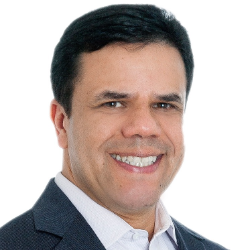
Eduardo Vides
Eduardo Vides

Eduardo Vides is an experienced public health physician, playing a leading role as a project and research manager for top-tier health organizations. With a career spanning over 20 years, he is committed to addressing the priorities and unique needs of diverse populations and communities. Eduardo specializes in health strategy, performance measurement, policy analysis, and research, with a particular focus on Indigenous health over the past 15 years, collaborating closely with Indigenous populations and organizations across the Americas. His extensive experience extends to public health service, nonprofit and private organizations, Indigenous governments, and ethnic communities. Eduardo actively participates in various advisory, directorial, planning, and networking committees. His expertise in global health is evident in leading knowledge exchange capacity development for international organizations through Multi-Sectoral Analysis (MUSA) Additionally, Eduardo is the Director of Multi- Sectoral Expertise Group (MSEG) in Canada and leads the Inter- Sectoral Action Group ( ISAG) a think tank dedicated to shaping the future of healthcare aligned with the international development agenda. This initiative addresses the evolving landscape marked by rapid advancements in virtual care, advanced analytics, medical technologies, new treatments, healthcare reform, regulatory changes, quality assurance, and the impact of climate change on health. Eduardo utilizes tools such as a Multi-sectoral Analysis (MUSA) approach which is grounded in core approaches such as Health in All Policies (HiAP), Health and Environmental Impact Assessment (HEIA), equity in social determinants of health, inter-sectoral action, policy analysis, and ethical public governance.
Dr. Vides is an internationally graduated physician, holding a medical degree from the UAG, Autonoma University of Guadalajara (Mexico). His academic achievements also include a Master of Public Health with a specialization in Environment from the University of London (UK), a Master in Health Administration from Xaveriana University, and Postgraduate Diplomas in Health administration and Health Services Audit and Quality Assurance from EAN University (Colombia).
Amidst his accomplished career, Eduardo finds his most profound role to be that of Fabiana’s father.
Event Dates
Conference
Thursday September 11 - Saturday September 13, 2025
Event Location
Sheraton Fallsview Hotel
5875 Falls Ave,
Niagara Falls, ON
L2G 3K7
Event Contact
North American Refugee Health Conference (NARHC) Inc.
Click here to learn more about NARHC Inc.
We do not issue letters of invitation to international delegates. Administrative fees will apply to cancelled registrations. We encourage you to finalize travel prior to registering.

 Copyright© | MYConference Suite Registration | D.E. Systems | All Right Reserved.
Copyright© | MYConference Suite Registration | D.E. Systems | All Right Reserved.